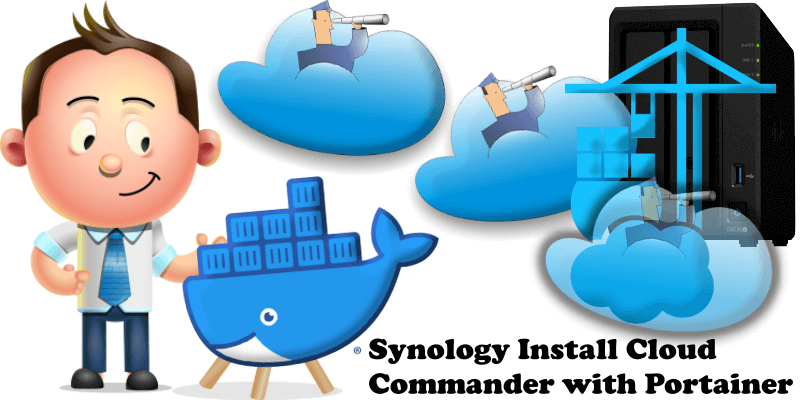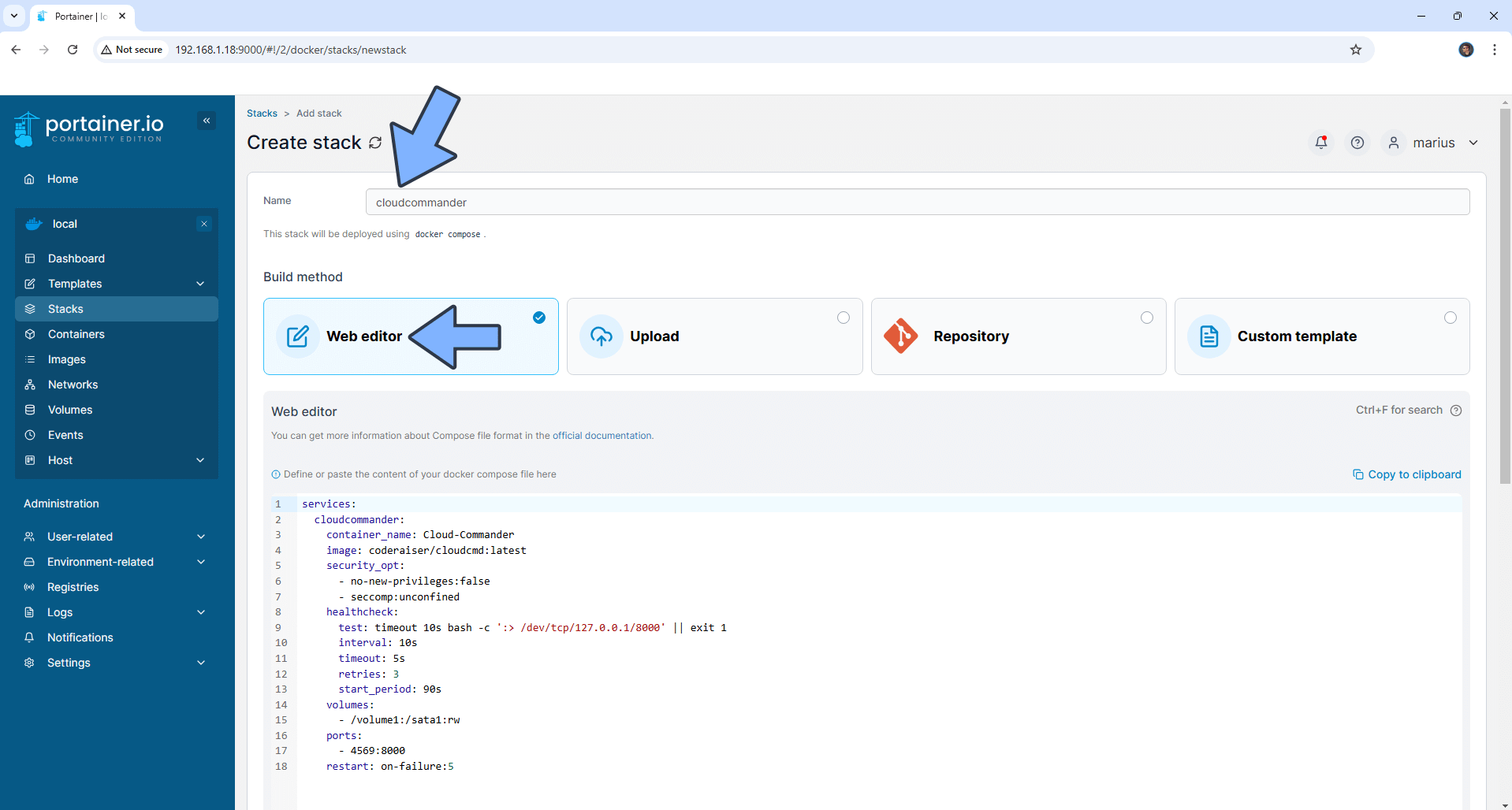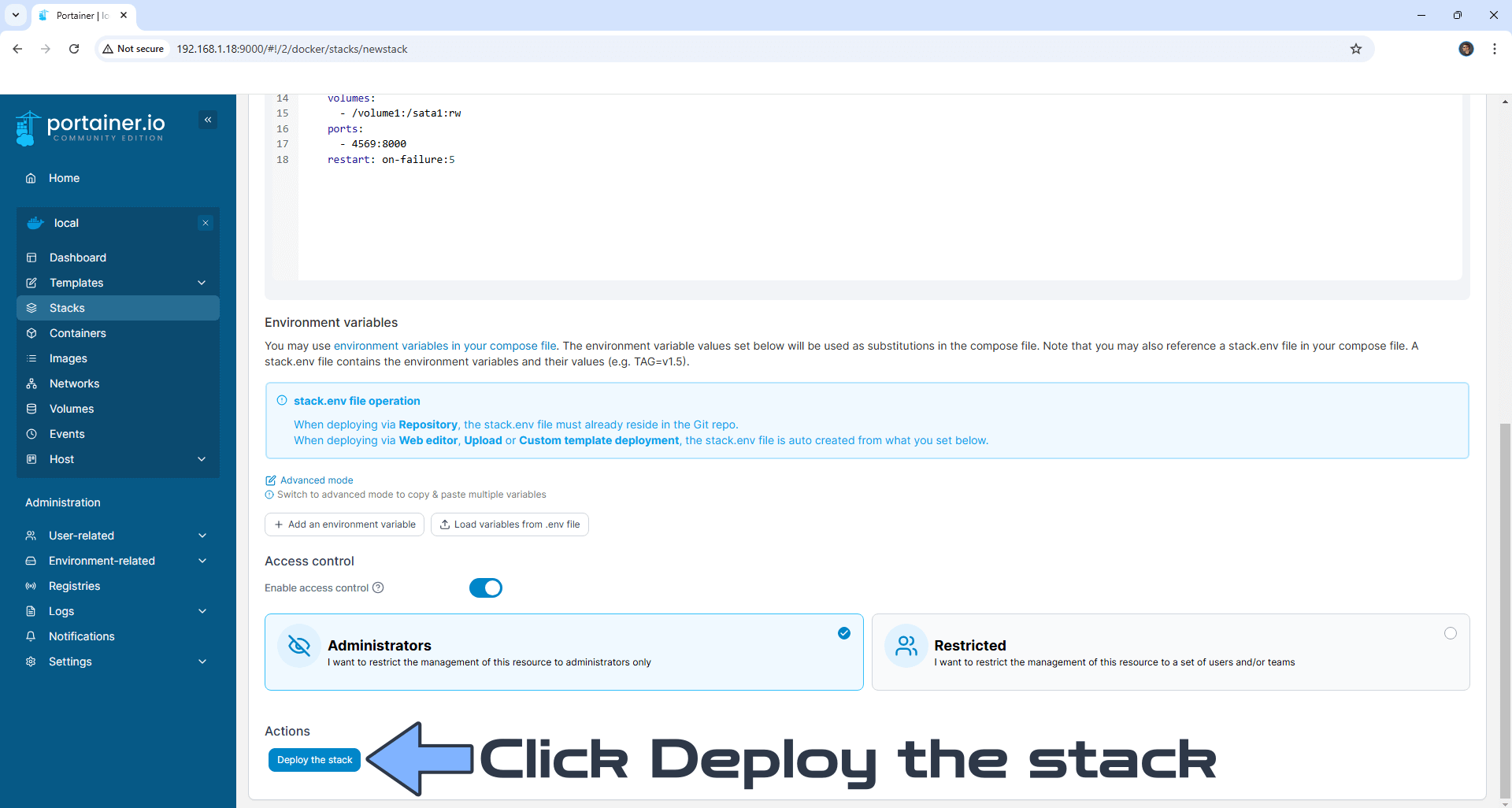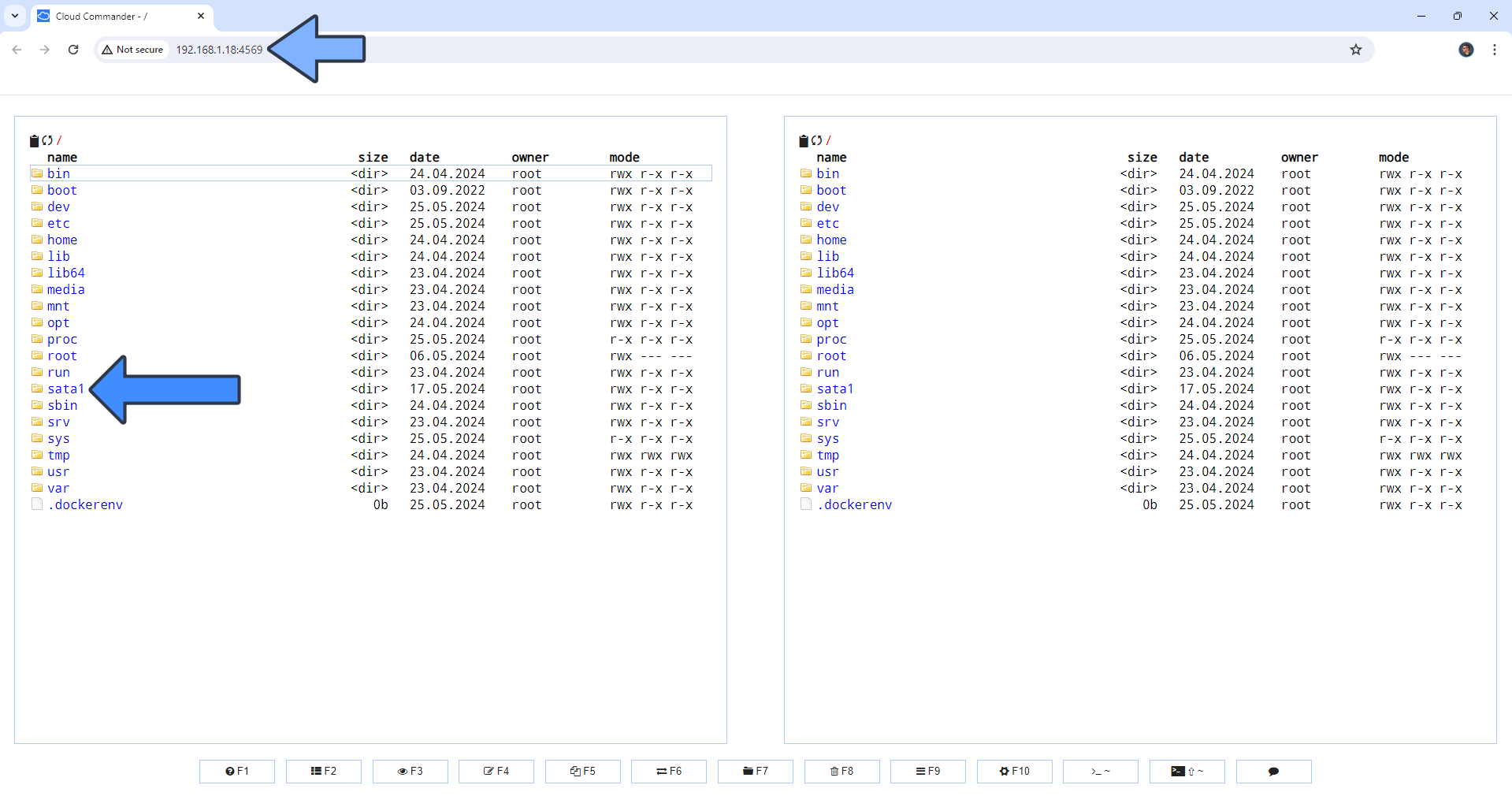
My previous guide for Cloud Commander involved the use of Task Scheduler. Today I’m offering a recommended and excellent alternative for installing the latest Cloud Commander version via Portainer. Cloud Commander, like Double Commander, is a file manager with a console and editor. It includes a command-line console and a text editor. Cloud Commander helps you manage your Synology NAS server and work with files, directories and programs in a web browser from any computer, mobile device or tablet. In this step by step guide I will show you how to install Cloud Commander on your Synology NAS using Docker & Portainer.
This guide works perfectly with the latest Cloud Commander v18.7.1 release.
STEP 1
Please Support My work by Making a Donation.
STEP 2
Install Portainer using my step by step guide. If you already have Portainer installed on your Synology NAS, skip this STEP. Attention: Make sure you have installed the latest Portainer version.
STEP 3
Log into Portainer using your username and password. On the left sidebar in Portainer, click on Home then Live connect. Follow the instructions in the image below.

On the left sidebar in Portainer, click on Stacks then + Add stack. Follow the instructions in the image below.

STEP 4
In the Name field type in cloudcommander. Follow the instructions in the image below.
services:
cloudcommander:
container_name: Cloud-Commander
image: coderaiser/cloudcmd:latest
security_opt:
- no-new-privileges:false
- seccomp:unconfined
healthcheck:
test: timeout 10s bash -c ':> /dev/tcp/127.0.0.1/8000' || exit 1
interval: 10s
timeout: 5s
retries: 3
start_period: 90s
volumes:
- /volume1:/sata1:rw
ports:
- 4569:8000
restart: on-failure:5

STEP 5
Scroll down on the page until you see a button named Deploy the stack. Click on it. Follow the instructions in the image below. The installation process can take up to a few minutes. It will depend on your Internet speed connection.

STEP 6
If everything goes right, you will see the following message at the top right of your screen: “Success Stack successfully deployed“.

STEP 7
🟢Please Support My work by Making a Donation. Almost 99,9% of the people that install something using my guides forget to support my work, or just ignore STEP 1. I’ve been very honest about this aspect of my work since the beginning: I don’t run any ADS, I don’t require subscriptions, paid or otherwise, I don’t collect IPs, emails, and I don’t have any referral links from Amazon or other merchants. I also don’t have any POP-UPs or COOKIES. I have repeatedly been told over the years how much I have contributed to the community. It’s something I love doing and have been honest about my passion since the beginning. But I also Need The Community to Support me Back to be able to continue doing this work.
STEP 8
The installation process can take up to a few seconds/minutes. It will depend on your Internet speed connection. Now open your browser and type in http://Synology-ip-address:4569 Your Cloud Commander dashboard at a glance! Click sata1. You can easily explore all folders and files on your Synology NAS. Follow the instructions in the image below.

Enjoy Cloud Commander!
If you encounter issues by using this container, make sure to check out the Common Docker issues article.
Note: If you want to run the Cloud Commander container over HTTPS, check How to Run Docker Containers Over HTTPS. In order to make Cloud Commander work via HTTPS, it’s mandatory to activate WebSocket. ⚠️Warning: Do not expose the Dufs container over the Internet.
Note: Can I run Docker on my Synology NAS? See the supported models.
Note: How to Back Up Docker Containers on your Synology NAS.
Note: Find out how to update the Cloud Commander container with the latest image.
Note: How to Free Disk Space on Your NAS if You Run Docker.
Note: How to Schedule Start & Stop For Docker Containers.
Note: How to Activate Email Notifications.
Note: How to Add Access Control Profile on Your NAS.
Note: How to Change Docker Containers Restart Policy.
Note: How to Use Docker Containers With VPN.
Note: Convert Docker Run Into Docker Compose.
Note: How to Clean Docker.
Note: How to Clean Docker Automatically.
Note: Best Practices When Using Docker and DDNS.
Note: Some Docker Containers Need WebSocket.
Note: Find out the Best NAS Models For Docker.
Note: Activate Gmail SMTP For Docker Containers.
This post was updated on Saturday / August 23rd, 2025 at 7:09 PM
